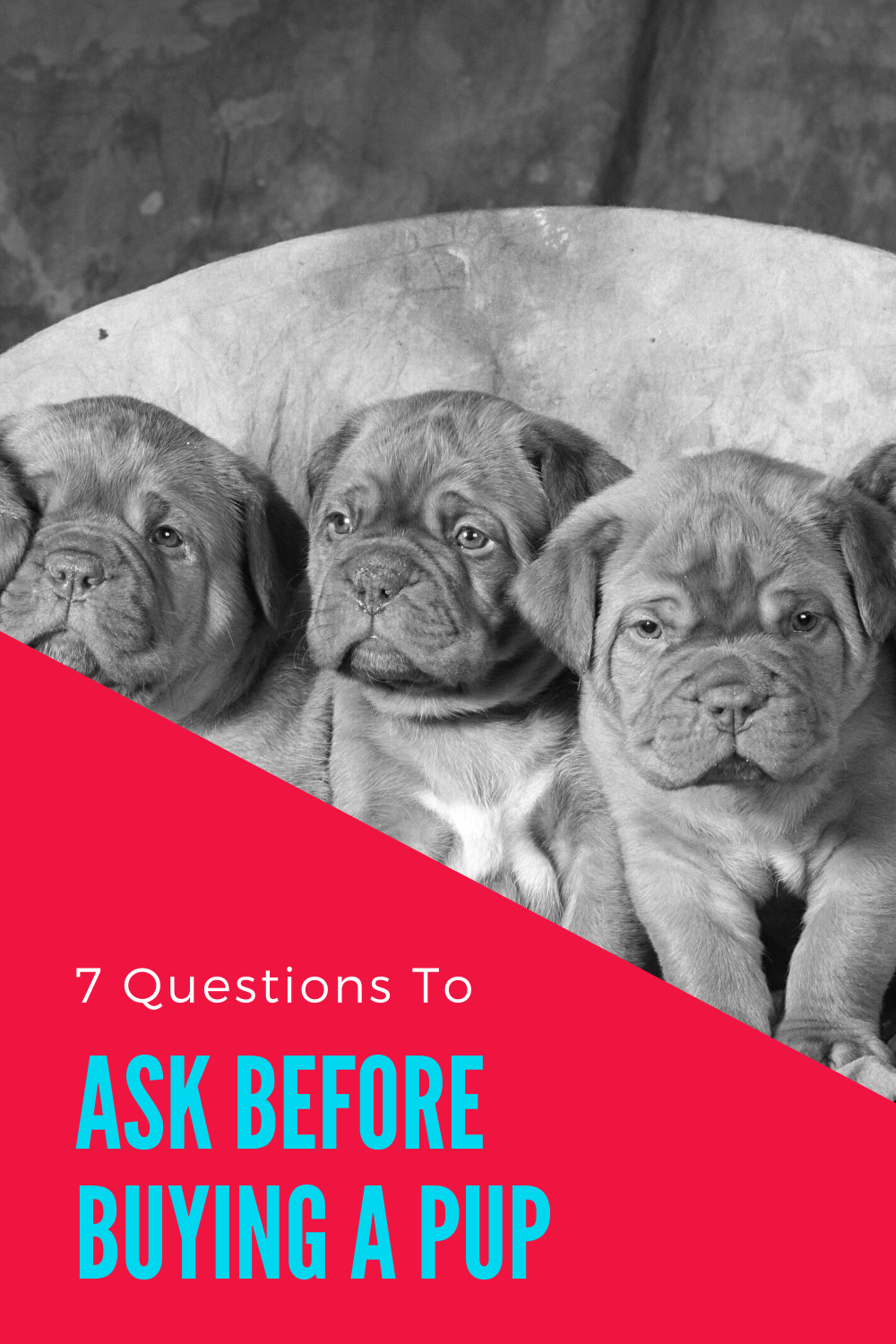7 Questions To Ask When Buying A Puppy
If you’re planning on purchasing a new puppy, you’re probably eager to go to the nearest breeder and bring your new little friend home as soon as possible. Before you do, however, you should consider several important questions to ask any breeder.
You want to learn as much as you can about the breeder and his reputation because anything less than a reputable dog expert can lead to puppies with congenital health problems, aggression, or other behavior problems. Make sure to learn as much as you can about the breed and the particular puppy to see if he is a good match for your family.
You want the breeder to be knowledgeable and careful about his or her profession. A reputable breeder who is interested in your family and wants to make sure that you will provide a good home is always a good sign. Here are some important questions to keep in mind.
1. What can you tell me about the parents?
You want to know about the history of your purebred dog in order to increase the likelihood that your dog will be healthy, trainable, and an overall great pet for your family. Titles and champion status are always good to see, as are any other certifications and diplomas for obedience, good manners, or agility.
Keep in mind, however, that it doesn’t help all that much to know that there was a champion in your dog’s line a few generations ago. This is especially true if it only occurred on one side of the family, so always do some investigation when you see a breeder advertise champion status.
2. Where were the puppies raised?
Ideally, the litter should have been raised among humans and should already be comfortable around adults in the house. It ensures that your puppy has already been socialized (or is at least already on his way). By the way, raising a litter of puppies inside the house is known as “underfoot.”
3. That brings up the next question — socialization.
You will have a much easier task when you bring home your puppy if he has already been exposed to a variety of people (including children) and the typical objects and noises found around the house.
4. How long have you been doing this?
Ideally, you’re looking for a breeder who has been specializing in a particular dog breed for years to ensure quality lines.
5. Are there any common genetic problems I should know about in this type of breed?
A purebred dog can be prone to a number of different issues like hip dysplasia, cancer, or eye problems. Beware of a person who simply doesn’t know the answer to these types of questions because chances are he or she is not a good dog breeder.
6. What measures have been taken to ensure the dog’s health?
You want to see documentation that shows that the dog you’re about to purchase has been tested and certified. This is especially important when dealing with a particular breed that is prone to problems like hip dysplasia. There are specific certifications, such as those from the Orthopedic Foundation for Animals, that rule out these types of problems.
7. Can I see the parents?
You want to pay attention to the health and temperament of the parents, but keep in mind that the female may be a little bit anxious because she does not want to lose her puppies. Also, the father may not be on site because sometimes a good breeder will go elsewhere to find the best match possible.
A good breeder can also help you evaluate the litter of puppies. Even within a particular breed, there will be different temperaments and characteristics. A good breeder can identify which puppy is the shyest and which is the most outgoing. This can help you match the right dog for your family.
Hopefully, these questions will help you make a more informed decision when choosing your new canine friend. Just make sure to think intelligently and make a good choice, since it’s very difficult to ignore that cute puppy face. You have to make sure that the dog has the right temperament and traits for your family and that he or she is healthy.
If you don’t take time to research your breeder, you can end up with a poor quality dog. Even the great breeds like Golden Retrievers, German shepherds, or Dalmatians can end up with genetic health problems, aggression, or other problems. Learn to ask the breeder the right types of questions before you make your purchase.
Keeping these considerations in mind will help you make a better choice when it comes time to bring your dog home to your family. You want to make sure to make an intelligent choice and not simply an emotional one. That cute puppy may seem adorable and irresistible, but remember that you are making a long-term commitment.


